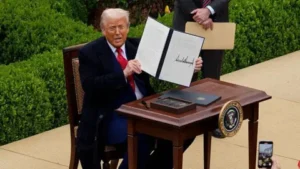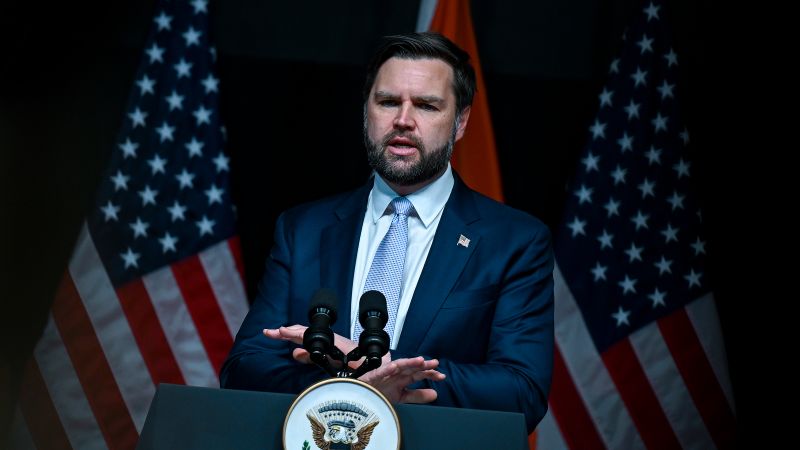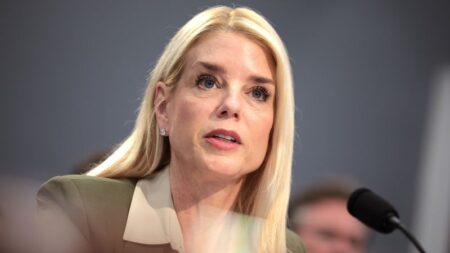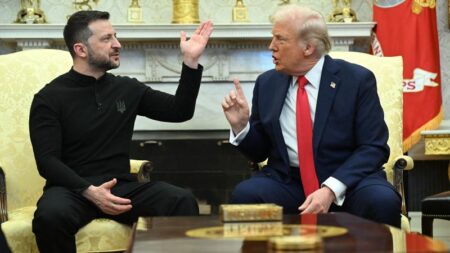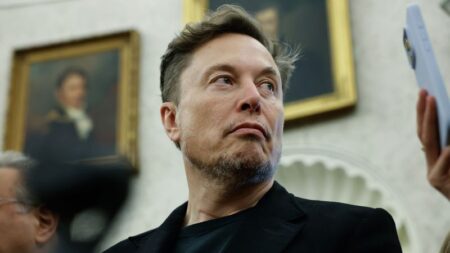In January 2020, a pivotal moment unfolded in U.S. foreign policy when President Donald Trump ordered a military strike that assassinated Iranian General Qasem Soleimani. At that time, JD Vance, then a venture capitalist and author, expressed skepticism about the military action on Tucker Carlson’s Fox News show. He cautioned that such military interventions could entrench the U.S. in the Middle East for years, drawing attention away from rising global powers like China.
Fast forward to the present, Vance has undergone an ideological shift and now serves as Vice President under Trump. His earlier skepticism now seems to have transformed into strong support for military actions against Iran, particularly in efforts to dismantle its nuclear program. Vance notably asserted that the U.S. was not at war with Iran per se; rather, the conflict lay with Iran’s attempts to acquire nuclear capabilities. This rebranding of military action emphasizes a more focused approach that seeks to avoid drawn-out conflicts akin to those experienced in the Middle East in previous decades.
Vance’s transformation showcases an alignment with the rationale of the Trump administration regarding its military strikes against Iran. The administration maintains that these strikes are purely tactical—to avert nuclear threats—without necessitating a broader military campaign. Moreover, Vance has positioned himself uniquely within the Trump administration, acting as a diplomatic liaison who bridges various factions of the Republican Party. His insights are valued; Trump often solicits his views in decision-making processes.
Senator Eric Schmitt from Missouri remarked on the close alignment between Trump and Vance, highlighting that their foreign policy agendas resonate well together—there are no apparent rifts in their approach. Vance has solidly established himself as a significant figure within the administration, leveraging his military background as a former Marine and his experience as a senator to influence major policy shifts. For example, he has taken an active role in advocating for substantial tax and spending reforms as well.
Despite a background shaped by realism about military engagements overseas, particularly influenced by his experiences in the Iraq War, Vance’s current support for military action reflects a focus on national security. He has emphasized that military intervention is necessary if it serves to halt Iran’s nuclear ambitions. Sources close to him assert that his stance does not reflect a fundamental shift in his ideology but rather a strategic response to evolving geopolitical realities.
Critically, national security experts caution that the U.S. may soon face new dilemmas regarding further military actions against Iran. Recent developments indicate that Tehran has halted cooperation with the International Atomic Energy Agency (IAEA), suggesting an impending resumption of uranium enrichment. Israeli Prime Minister Benjamin Netanyahu has hinted at considering additional military responses or even regime change in Iran, raising stakes further.
Veteran Republican figures, such as former Senate Majority Leader Mitch McConnell, have pointed out that Vance’s support for military interventions contrasts with a segment of the party veering towards isolationism. McConnell remarked on Vance’s potential alignment with the more backward-looking stance of isolationists within the Department of Defense.
Nonetheless, Vance refers to the administration’s military action against Iran as an embodiment of what he terms “the Trump doctrine,” advocating a robust military posture when dialogues fail. He explains that articulating American interests, exploring diplomatic resolutions, and subsequently using decisive military measures if necessary comprise critical elements of this doctrine.
Elected to the Senate in 2022, Vance campaigned on drawing back U.S. support for conflicts and foreign aid, particularly in places like Ukraine, pivoting attention towards the more significant threat posed by China. His increasingly hawkish views led to friction with McConnell when it came to funding Ukraine amidst escalating tensions with Russia.
Endorsing Trump as the 2024 candidate, Vance has continually framed the ex-president as a restraint on more extensive military engagements, arguing that Trump “started no wars”. However, Vance’s recent actions indicate an evolving philosophy which balances a realist stance with aggressive military postures when deemed necessary.
In his October remarks to a comedian about U.S. interests, Vance articulated a nuanced position on the relationship between Israel and American strategic interests, suggesting at times they do not wholly align. As discussions about military responses involving Iran and Israel unfold, Vance seems poised to play a significant role in shaping the administration’s foreign policy in intricate ways.
Before the military strikes on Iran, Vance’s advocacy and behind-the-scenes efforts revealed his commitment to clarifying the administration’s limited military goals in Iran—to eliminate targeted nuclear facilities without expanding conflict. After the strikes, he reiterated the administration’s intentions and expressed understanding of the public’s wariness from past entanglements in the Middle East, reassuring that Trump’s leadership differentiates from previous administrations’ approaches.
Overall, Vance’s journey from skepticism to support illustrates the fluid dynamics of political ideology amidst shifting geopolitical landscapes, especially concerning U.S. military action in the Middle East. His influence and perspectives have helped to shape the current administration’s strategies and may indeed set the course for future American



